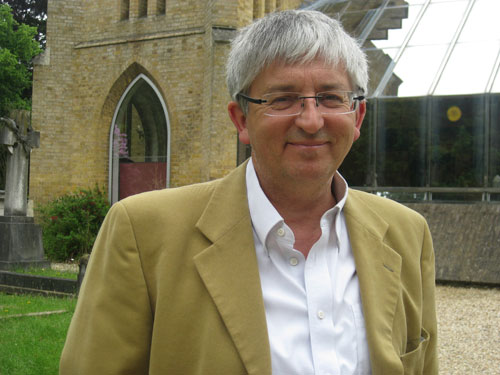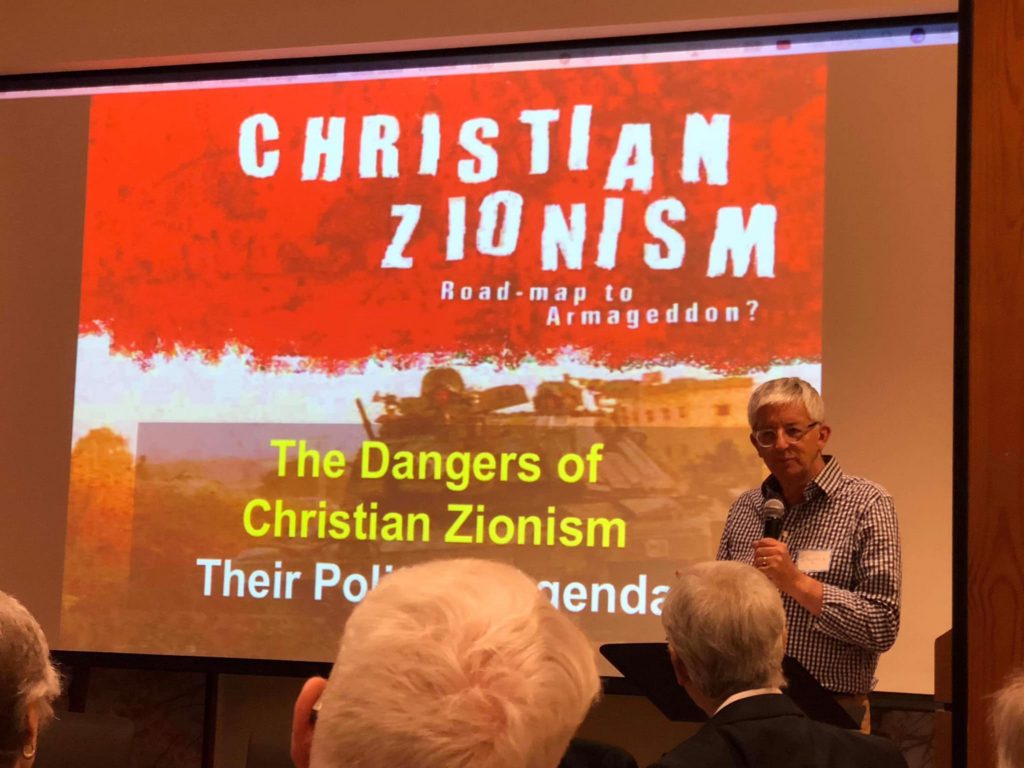 I recently attended a lunch in the House of Commons to honour the work of Elam. During the meal, Magda, a young Christian lady from Iran shared how she had been lured into a marriage with a man pretending to be a Christian. When he divorced her and took their 2 year old daughter, Magda went to the court to gain custody. According to the Iranian constitution a little girl can stay with her mother up to the age of 9. But the judge told Magda that the law did not apply in her case.
I recently attended a lunch in the House of Commons to honour the work of Elam. During the meal, Magda, a young Christian lady from Iran shared how she had been lured into a marriage with a man pretending to be a Christian. When he divorced her and took their 2 year old daughter, Magda went to the court to gain custody. According to the Iranian constitution a little girl can stay with her mother up to the age of 9. But the judge told Magda that the law did not apply in her case.
“The judge told me: ‘There’s only one way you can take custody of your daughter: If you come back to Islam and recant your Christian faith, we will give you your daughter.’ My lawyer was very happy. He urged me to accept the court offer and pretend I was not a Christian. It was a nightmare moment. On the one hand I really loved my daughter and wanted to get her back at all costs, but on the other hand I loved Jesus and had felt His living presence with me throughout my life. There was no way I could bring myself to deny Jesus. Deep in my heart, I felt peace that God was in charge. During those tense moments, I felt as if Jesus was waiting for my answer. Would I choose Him over my daughter? I told the judge that I would never deny Jesus. So the court ruled in favour of my husband and took my daughter away from me. This was the darkest chapter of my life. I missed my daughter terribly. I spent my days smelling her clothes, thinking of what she might be doing, and weeping. I became more isolated and was easily offended. I felt wronged and became depressed. I spent hours alone in my room crying.”
What would you have done? What will you do if you are faced with that choice in the future? Deny Jesus or lose your children? Deny Jesus or lose your job? Deny Jesus or go to prison? Deny Jesus or lose your life? What is the wise thing to do? The Bible was given to make us wise. The Book of Proverbs gives us the key that unlocks wisdom:
“The fear of the LORD is the beginning of knowledge, but fools despise wisdom and discipline.” (Proverbs 1:7)
The Bible divides the world in two: Those who fear the Lord, and fools who do not. A fool is not just someone who is a couple bricks short of a load, or is a few fries short of a Happy Meal. The Bible defines a fool as someone who doesn’t follow God’s ways. Someone who knows the right thing to do but instead does the opposite, or simply does nothing. Proverbs says that the “complacency of fools will destroy them.” (Proverbs 1:32).
In the New Testament, the contrast is made between the believer and unbeliever, between those walking in the light and those walking in darkness, between those following Jesus and those ignoring Jesus.
“Therefore everyone who hears these words of mine and puts them into practice is like a wise man who built his house on the rock. The rain came down, the streams rose, and the winds blew and beat against that house; yet it did not fall, because it had its foundation on the rock. But everyone who hears these words of mine and does not put them into practice is like a foolish man who built his house on sand.” (Matthew 7:24-27)
Wisdom doesn’t come with age either. As the saying goes, “We can only be young once, but we can be immature indefinitely.” What will you pay to get wisdom?
“Wisdom is supreme; therefore get wisdom. Though it cost all you have, get understanding.” (Proverbs 4:7)
What sacrifice will you make to become wise? “For wisdom is more precious than rubies, and nothing you desire can compare with her.” (Proverbs 8:11)
Do you feel Magda paid too high a price? Was she wise or foolish? We make decisions every day, many trivial, some significant and a few life-changing. But do we choose wisely? How can we choose wisely?
So how did Magda respond to the Court taking her daughter way from her? In her own words:
“I was forced out of my isolation by one of the worst tragedies in our history: the earthquake in the city of Bam in southern Iran. I saw horrible scenes of devastation on TV: people wailing and mourning the loss of their loved ones. I could easily identify with them, as I was also mourning the loss of my beloved daughter. One day, a friend of mine who is now in prison for his Christian faith, called me and asked me to work with him and others helping the people of Bam.
I told my Christian friend that I couldn’t be of any help, thinking that if I had been a good mother God would have let me take care of my own child. After his telephone call, my mother came to my room. She said: ‘I want to tell you something: When you trusted God in the court and did not deny Jesus, God was with you. He is also with you now and has not abandoned you. Put your trust in Him, and like Moses’ mother, commit your daughter to the caring hands of God. He will take care of your daughter and will guide her in the river of life, and one day He will bring her back to you.’
My mother’s words greatly encouraged me, and I decided to call my friend and let him know I would be coming to help. I stayed in the city of Bam for one year, and while helping the orphaned children, God taught me many valuable lessons. He did wonderful miracles in my life, the most important of which was that He brought me to believe I am a valuable instrument in the hands of God.
He allowed me to shower my motherly love on children who had not only lost their mothers, but their whole families. We had the opportunity to sing Christian songs for them and tell them about God’s love for them. And despite the potential dangers, we also had the opportunity to pray with the people of Bam and tell them about Jesus. I was mother to many children, and God was abundantly making up for the dark days of my life. God gave me a chance to re-discover myself and my talents, and realize that I can use my talents for His glory. Most important of all, He put songs of joy and gratitude on my lips, things that had been absent from my lips for a long time.”
Read more of Magda’s story here



 I recently attended a lunch in the House of Commons to honour the work of
I recently attended a lunch in the House of Commons to honour the work of  At least one in four American Christians surveyed recently by Christianity Today magazine said that they believe it is their biblical responsibility to support the nation of Israel. This view is known as Christian Zionism. The Pew Research Center put the figure at 63 per cent among white evangelicals. Christian Zionism is pervasive within mainline American evangelical, charismatic and independent denominations including the Assemblies of God, Pentecostals and Southern Baptists, as well as many of the independent mega-churches. It is less prevalent within the historic denominations, which show a greater respect for the work of the United Nations, support for human rights, the rule of international law and empathy with the Palestinians.
At least one in four American Christians surveyed recently by Christianity Today magazine said that they believe it is their biblical responsibility to support the nation of Israel. This view is known as Christian Zionism. The Pew Research Center put the figure at 63 per cent among white evangelicals. Christian Zionism is pervasive within mainline American evangelical, charismatic and independent denominations including the Assemblies of God, Pentecostals and Southern Baptists, as well as many of the independent mega-churches. It is less prevalent within the historic denominations, which show a greater respect for the work of the United Nations, support for human rights, the rule of international law and empathy with the Palestinians.
 I understand that the Board of Deputies has made a complaint against Stephen under the Measure suggesting that he is guilty of anti-Semitism.
I understand that the Board of Deputies has made a complaint against Stephen under the Measure suggesting that he is guilty of anti-Semitism.
